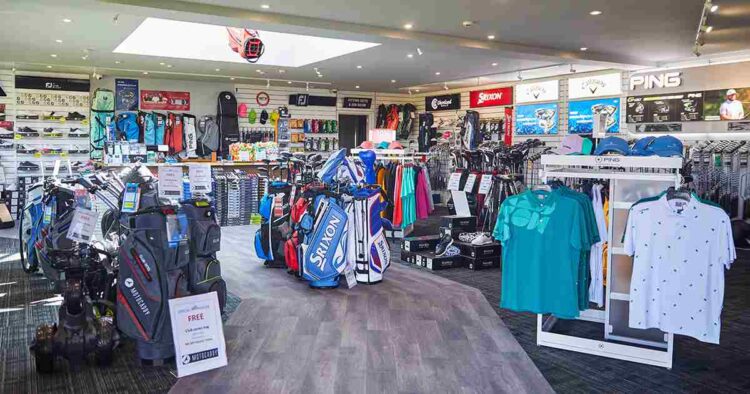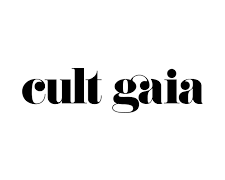If you’ve ever stepped inside a golf shop, whether at your local golf course or browsing online at retailers like PGA Tour Superstore or Golf Galaxy, you might have wondered: how does a golf shop really work?
Golf shops are more than just stores that sell clubs and balls—they’re a complete ecosystem for golfers. They provide expert advice, professional fittings, lessons, and specialized services that you won’t find at a general sports store. Understanding how a golf shop works can help golfers choose the right place to buy equipment, and even inspire entrepreneurs looking to start their own golf retail business.
What is a Golf Shop?
A golf shop is a retail business specializing in products and services for the game of golf. This can be:
-
A pro shop located at a golf course or country club, often managed by a PGA-certified professional.
-
A standalone golf retail store like Golf Town in Canada or Golf Galaxy in the U.S.
-
An online golf shop such as Fairway Jockey or even specialized sections on Amazon.
Unlike general sporting goods stores, golf shops cater exclusively to the needs of golfers—from beginners picking up their first set of clubs to professionals fine-tuning their gear.
Types of Golf Shops
-
On-Course Pro Shops
-
Found inside golf courses or clubs.
-
Managed by golf professionals (PGA Pros).
-
Offer lessons, rentals, and exclusive gear.
-
-
Golf Retail Stores
-
Large-scale shops like PGA Tour Superstore and Dick’s Sporting Goods (Golf Section).
-
Wide product range: from Titleist Pro V1 balls to Callaway Paradym drivers.
-
Often have simulators for testing clubs.
-
-
Online Golf Shops
-
Websites like GolfDiscount.com, Worldwide Golf Shops, and Fairway Jockey.
-
Sell everything from TaylorMade irons to Garmin GPS watches.
-
Convenient for comparing prices and shopping worldwide.
-
-
Second-Hand & Used Golf Shops
-
Businesses like 2nd Swing Golf focus on pre-owned clubs.
-
Great for beginners who don’t want to invest in new, expensive gear.
-
What Products Do Golf Shops Sell?
Golf Clubs
-
Drivers (TaylorMade Stealth, Callaway Paradym, Ping G430).
-
Irons (Titleist T-Series, Mizuno JPX).
-
Wedges (Cleveland RTX, Vokey SM10).
-
Putters (Odyssey White Hot, Scotty Cameron).
-
Hybrids & fairway woods for versatility.
Golf Balls
-
Premium balls: Titleist Pro V1, Callaway Chrome Soft.
-
Distance balls: Srixon Soft Feel, Bridgestone e6.
-
Practice/range balls for training.
Apparel & Footwear
-
Polo shirts (Nike Golf, Adidas Golf, Under Armour).
-
Shoes (FootJoy, ECCO, Puma Golf).
-
Gloves, hats, rain gear, and sunglasses.
Bags & Accessories
-
Stand bags, cart bags, and tour bags.
-
Golf trolleys & push carts.
-
Headcovers, umbrellas, and towels.
Tech & Training Aids
-
Launch monitors (TrackMan, Foresight GCQuad).
-
Rangefinders & GPS devices (Bushnell, Garmin Approach).
-
Putting mats, swing trainers, alignment sticks.
Golf shops often stock seasonal gear, like waterproof jackets in the winter or special edition Masters merchandise in April.
What Services Do Golf Shops Provide?
-
Club Fitting – Using launch monitors and swing analysis to customize clubs.
-
Club Repair & Regripping – Replacing grips, adjusting loft/lie angles.
-
Golf Lessons – Many pro shops employ PGA professionals who provide one-on-one or group instruction.
-
Rental Services – Clubs, buggies, or even GPS units for visiting golfers.
-
Event & Tournament Support – On-course shops often help organize corporate or charity golf days.
How Does a Golf Shop Make Money? (Business Model)
-
Retail Sales – Equipment, balls, apparel, and accessories.
-
Service Revenue – Fittings, lessons, repairs.
-
Brand Partnerships – Stocking equipment from Titleist, Callaway, TaylorMade, Ping.
-
Online Sales – e-commerce and affiliate programs.
-
Membership & Loyalty Programs – Discounts for regular customers or golf club members.
For pro shops, revenue also comes from green fees, cart rentals, and memberships, making them part of the broader golf course business.
Behind-the-Scenes: How a Golf Shop Operates
-
Inventory Management – Sourcing from manufacturers like Acushnet (Titleist, FootJoy), Callaway Golf, or Mizuno.
-
Staffing – Knowledgeable staff, often including PGA pros.
-
Customer Experience – Demo days where golfers test clubs, simulators for indoor trials.
-
Marketing & Promotions – Seasonal sales, holiday gift packages, loyalty points.
Running a golf shop requires balancing retail expertise, sports knowledge, and customer service.
How Online Golf Shops Work
-
E-commerce Platforms – Product listings, live chat support, and detailed descriptions.
-
Shipping & Returns – Partnerships with couriers for fast delivery.
-
Customer Service – Offering fittings virtually via video or questionnaires.
-
Seasonal Promotions – Black Friday, Masters Week, or Ryder Cup discounts.
Websites like Worldwide Golf Shops often run clearance events to clear old models before new launches.
Why Do Golfers Use Golf Shops Instead of General Stores?
-
Specialized Knowledge – Staff who understand shaft flex, swing speeds, and ball spin.
-
Exclusive Gear – Pro-only equipment not always available at mainstream sports shops.
-
Community – Golfers meet, share tips, and join lessons.
-
Hands-On Experience – Testing clubs in simulators or on the course.
How to Choose the Right Golf Shop
-
Location – Conveniently close or online with fast shipping.
-
Brand Variety – Shops with multiple manufacturers (Titleist, TaylorMade, Cobra, Ping).
-
Services – Whether they offer fittings, repairs, or lessons.
-
Staff Expertise – Look for PGA-certified professionals.
-
Customer Reviews – Checking online testimonials or ratings.
For online shops, check return policies, warranty coverage, and shipping times before buying.
Future of Golf Shops
-
Technology Integration – AI-powered swing analysis, VR/AR fittings.
-
E-commerce Growth – More golfers buying online post-COVID.
-
Subscription Models – Rent clubs monthly (already seen with companies like Clublender).
-
Sustainability – Recycled golf balls, eco-friendly apparel, second-hand markets.
Golf retail is evolving with digital-first strategies and eco-conscious products.
FAQs
Do golf shops buy used clubs?
Yes, many shops like 2nd Swing Golf and Golf Galaxy’s trade-in program accept used clubs.
Can you rent clubs from a golf shop?
Most pro shops offer rentals for visitors and traveling golfers.
Are pro shops cheaper than retail golf stores?
Not always—pro shops often carry premium gear, but sometimes offer exclusive member discounts.
What’s the difference between a golf shop and a pro shop?
A pro shop is located at a golf course and often run by a PGA pro, while a golf shop can be retail or online.
Can you get fitted at any golf shop?
Most major golf retailers and many pro shops offer professional club fittings.
Conclusion
Golf shops play a vital role in the golfing world. They don’t just sell clubs and balls—they provide knowledge, fittings, repairs, and lessons that help golfers improve their game. Whether you’re visiting a local pro shop, exploring a retail golf store, or browsing an online golf shop, understanding how these businesses work will help you make smarter buying decisions.
From Titleist Pro V1 golf balls to custom-fitted TaylorMade drivers, golf shops connect players with the right equipment and expertise to enjoy the game.
About US: MamaSV helps you find updated and verified coupons for World-Wide Brands, are you shopping lover? visit now.



No Comments
Leave Comment